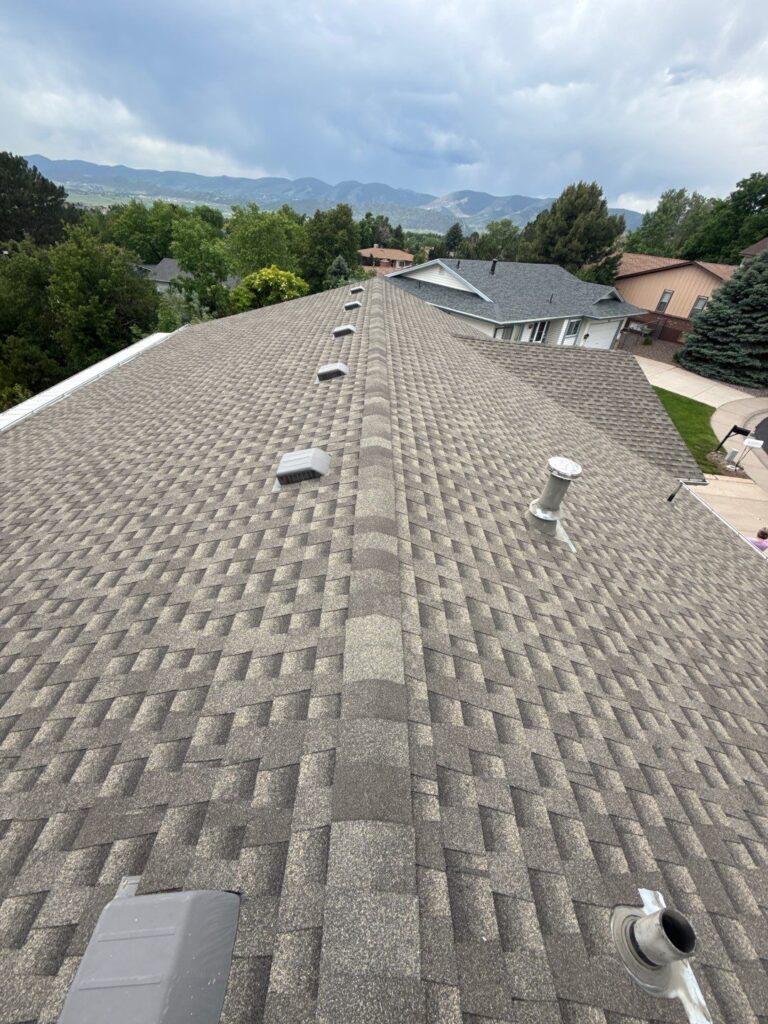
Roof inspections are one of the most effective ways to protect a home from unexpected repair costs and structural issues. In Denver, where weather conditions can be extreme, determining the right frequency for inspections is especially important. Regular inspections extend the lifespan of roofing systems and prevent costly damage from going unnoticed.
Recommended Roof Inspection Frequency in Denver
While many experts recommend annual roof inspections, Denver homeowners should aim for bi-annual inspections, typically in the spring and fall. The region’s harsh winters, heavy snowfall, sudden temperature changes, and summer storms put roofing systems under constant stress. Checking roofs twice a year allows early detection of damage, from loose shingles to hidden leaks, before they become expensive repairs.
Why Denver Weather Demands Extra Attention
Denver’s climate creates unique challenges for roofing. Snow accumulation adds heavy weight to roof structures, and spring melt can lead to water infiltration. Hailstorms are frequent and cause severe shingle damage, while strong winds may loosen flashing or remove roofing materials altogether. Constant sun exposure also accelerates the aging of asphalt shingles, leading to curling, cracking, and granule loss. These conditions make regular inspections essential for keeping roofs structurally sound.
Factors That Influence How Often Inspections Are Needed
Several elements determine the right inspection schedule for each home:
- Roof Age: Older roofs require closer monitoring, as materials deteriorate faster with age.
- Roofing Materials: Asphalt shingles generally last 15–30 years, metal roofs 40–70 years, and tile roofs can exceed 100 years. The less durable the material, the more frequent the inspections should be.
- Visible Damage: Missing shingles, sagging, water stains on ceilings, or granules in gutters all indicate urgent inspection needs.
- Storm Events: After hail, high winds, or heavy snowstorms, immediate inspections are critical to prevent water infiltration and structural issues.
Professional Inspections vs. DIY Checks
While homeowners can visually check for missing shingles or blocked gutters, professional inspections provide a much deeper evaluation. Skilled roofers use specialized tools and training to identify hidden damage such as leaks, ventilation problems, and insulation failures. Professional inspections also help maintain warranty compliance and reduce liability risks. Regular professional assessments can uncover up to 70% of issues that DIY inspections miss.
Cost and Long-Term Savings
Roof inspections in Denver typically range from $100 to $500, depending on roof complexity. Though this may seem like an extra expense, it is significantly cheaper than emergency repairs, which can cost two to three times more than preventative maintenance. Neglecting inspections may also lead to severe structural damage, sometimes amounting to 10% of a property’s total value. Regular inspections not only extend roof lifespan but also preserve energy efficiency by maintaining insulation performance.
Choosing Trusted Roofers in Denver
Homeowners should work with experienced professionals who understand Denver’s unique weather conditions. Tried and True Roofing, a leading roofing company in Denver, Colorado, provides expert inspections and maintenance services that keep homes protected year-round. Their local expertise ensures roofs are prepared for both winter storms and summer hail.
Conclusion
For Denver homeowners, twice-yearly roof inspections are the best strategy to protect a property from severe weather, extend roof life, and avoid costly emergency repairs. The ideal times are during spring and fall, with extra inspections recommended following severe storms. Professional roofing services deliver the expertise needed to detect hidden problems and keep roofing systems strong. Investing in routine inspections today prevents expensive issues tomorrow and ensures peace of mind in Denver’s unpredictable climate.

